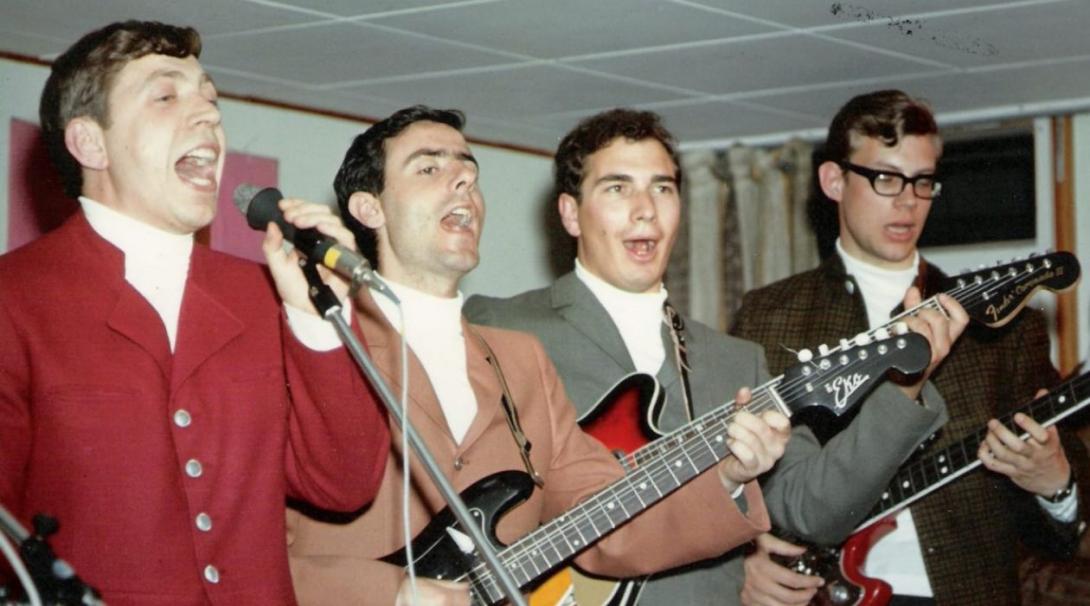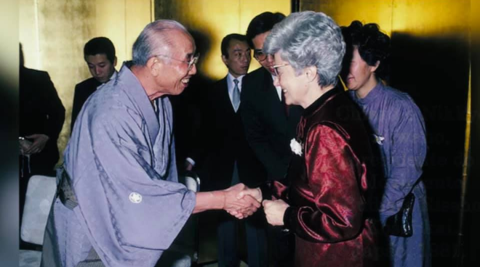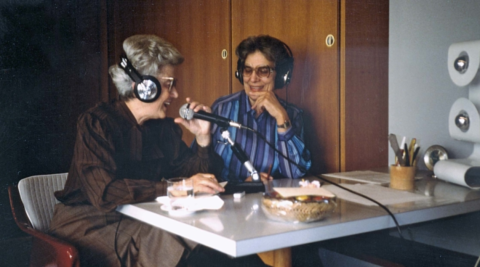The alternative revolution of the 1960s. The birth of the Gen Movement, Project Africa, and a new life blossoming

The international performing band formed in the late 1960s to offer music as a means to reach young people with the Gospel message
In December 1965, the Second Vatican Council ended, amid hopes for rapid change on one hand and fears of betraying a millennial tradition on the other.
At the international level, two opposing world blocks, one headed by the U.S. and the other by the Soviet Union, confronted one another in the race to conquer space while aiming at military dominance. The Cold War led to a buildup of nuclear stockpiles by these nations, quickly followed by Great Britain, France, China and Israel. Meanwhile, the war in Vietnam was reaching its peak.
In many parts of the world, especially in African countries emerging from colonial rule, disease and famine were spreading, displacing entire populations as countless refugees fled to other countries. Western moral values were also being shaken up, fueling youth protests and riots, at times violent, starting in 1968.
Unrest among the youth
In this context, the Focolare showed surprising vitality. Chiara Lubich expressed her prophetic vision, at the same time revealing her incredible talent as a founder. In 1966, she launched the Gen Movement (short for “new generation”) in Rome, which immediately attracted young people worldwide.
Back in the 1950s, during the first summer gatherings called “Mariapolis” near Trento, Italy, there were already groups of children who wanted to live Focolare spirituality, suited to their age group. Chiara called them popetti, meaning “little children” in her Trentine dialect. However, it was not until the mid-1960s that something totally new developed.
“During the summer of 1965, we were able to rent a booth at the World’s Fair in Milan to display our magazine, Città Nuova, as well as other materials about the movement,” remembers Luigino De Zottis. “It proved an excellent opportunity to enter the youth culture and begin to grasp the contemporary trends of those turbulent years. Many visited our booth, including followers of the prestigious singer and songwriter, Adriano Celentano (credited with introducing rock and roll to Italy) and other celebrities of the time. These and other contacts were fundamental in helping us understand what was driving the youth to rebel against traditional values.
“I threw myself into the fray. I remember spending evenings at The Piper nightclub in Rome, where celebrities from Europe and the U.S. performed (such as Patty Pravo, Lucio Dalla and Jimi Hendrix), and Sundays at the San Siro soccer stadium, which hosted the 1965 European Cup Finals.”
A lifestyle to change the world
“In October of 1966, Chiara Lubich spoke at a meeting in Munich, Germany,” continues De Zottis. “She was wearing a beautiful cyclamen pink coat. Because of it, we decided to launch our own cyclamen fashion line of scarves. It was symbolic, of course, but particularly important to us.
“At the following year’s summer Mariapolis, hundreds of young men and women appeared wearing cyclamen headscarves. They filled the hall and rushed up to the stage, chanting: ‘We’re taking over!’
“You need to know the context of those years to fully understand the significance of that moment. Thousands of young people all over the world were occupying schools, universities and factories, crying out for change, even violently.
“These young people of the Focolare wanted change too, but their method would be quite different. Although they were not interested in conventional forms of association, at times even feeling confined by some Focolare activities, these young people were nevertheless attracted by Chiara’s way of life.
“They felt that to change the world it would be enough to do as she did, that is, to live the Gospel radically. They were full of energy and enthusiasm.”
“You need to know the context of those years to fully understand the significance of that moment. Thousands of young people all over the world were occupying schools, universities and factories, crying out for change, even violently.
A calling for young people
“Hearing the same thing from youth in many parts of the world, Chiara decided that the time had come to create a space for young people in the movement,” says De Zottis.
“She had already launched two musical groups, Gen Rosso and Gen Verde, giving one a set of red (rosso in Italian) drums and the other green (verde), asking them to write songs, create music and give concerts that would appeal to their peers. In the meantime, the publication of the Gen magazine had begun and was already being translated into many languages.
“Chiara understood that behind all this enthusiasm lay a very precise plan of God. On February 3, 1968, she wrote: ‘The Gen should not feel they are elite. We are a movement that began with the precise purpose of permeating crowds of ordinary people, not setting ourselves apart from them, as monks do. To stand out from others is one way to give a Christian witness, but it is not our way, nor is it the way of anyone in our movement.’
“Two months later, on April 12, 1968, she further explained: ‘What is the Gen Movement? It is the new generation of the Focolare … You are just like us when we were young. I didn’t know my vocation at that time; nor did the others … We wanted only God as our Ideal. Now, 25 years later, I notice that you, young people have special graces of a type I don’t find in the adults of the movement. This means we are truly witnessing a new blossoming of life.’
Project Africa
“In that period, the Gen were entrusted with Operation Africa, a project created to support the work of the movement in Fontem,
Cameroon,” De Zottis remembers. “Chiara explained to them that the goal of this project was not merely to save lives with charitable works or volunteer services, but rather to develop infrastructure that would sustain the development of the Bangwa population, which was plagued by an extremely high infant mortality rate.
“Thus, the Gen all over the world raised funds to build a hospital, a boarding school with both elementary and secondary classes, a carpentry shop to train youth in a trade, a mill to extract palm oil and a small hydroelectric plant.
“At the same time, to ensure a balance between working on social projects and spiritual growth, Silvana Veronesi and Peppuccio Zanghì (both among Chiara’s early collaborators) developed human and spiritual development programs for the Gen. At that time, Chiara insisted on supporting the growth of young people. One day I asked her, ‘What is our role as adults interacting with them?’
“She answered: ‘Those of you of the first generation should only be guardian angels for them — nothing else. You should suffer with them and rejoice with them, and then ... you should disappear, because they must be the ones to do everything! They are the key players.”
First published in Città Nuova Italy












